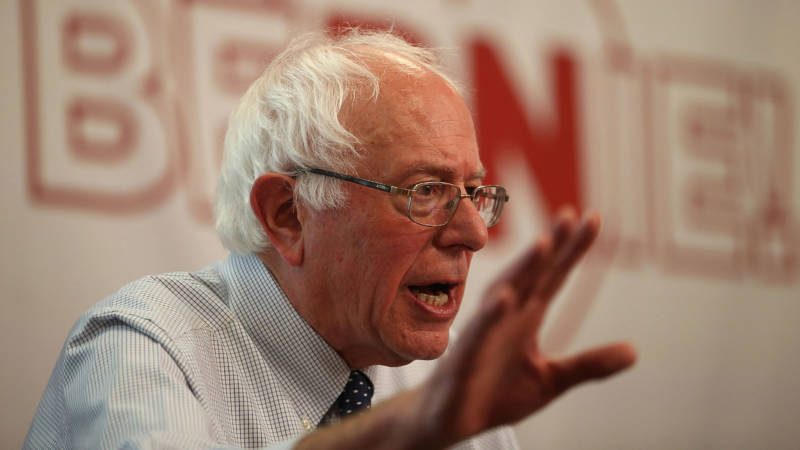We’re in this race until the last vote is cast, which will be a week after the primary in California and Washington DC.”
On What Happens if He Doesn’t Win the Nomination
“If we are unable to win the nomination, we are gonna fight in the Democratic convention in Philadelphia for the most progressive platform that we possibly can, which reflects the views of the millions of people who supported us. That means a Medicare for all, single-payer health care system, means paid family and medical leave, it means making public colleges and universities tuition free, raising the minimum wage to $15 an hour, making certain that the wealthiest people in this country and the largest corporations start paying their fair share in taxes, it means being aggressive in terms of addressing the planetary crisis of climate change, etc.”
On Criticism that His Platform is ‘Unrealistic’
“There is nothing that I am proposing which I think is particularly radical. What those people who say that have to ask themselves is, ‘How does it happen that every other major country on Earth guarantees health care to all people as a right? How come we can’t do that? How come we cannot do away with pay inequity? How come we can’t do away with the embarrassment that women are making 79 cents on the dollar? Why is our infrastructure collapsing and why are we not investing in it?’ So I think what we are fighting for is not radical. Countries all over the world—Germany, Scandinavia—make sure that kids, regardless of income, get a higher education.”
On Whether the U.S. Can Afford His Proposals
“We now have a distribution of wealth in which the top 1/10 of 1 percent owns almost as much wealth as the bottom 90 percent. Fifty-eight percent of all new income generated today goes to the top 1 percent. There’s been a massive shift of income and wealth in this country over the last 15 years. Of course we can afford it—this is the wealthiest country in the history of the world.”
On Political Revolution
“The ideas I am talking about are not radical — of course they can be done. The American people want them to be done. As you indicated, we have a Congress, which is controlled by big money’s interests. That’s what this entire campaign is about, rallying the American people to demand that Congress starts listening to ordinary Americans and not just the 1 percent. Now, can I guarantee you that we can succeed? No I can’t. There are no guarantees in this world. But I believe if the American people stand up and fight back, yes, we can accomplish our agenda. It requires a political revolution.”
